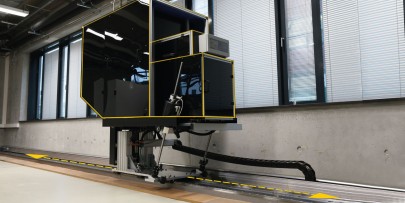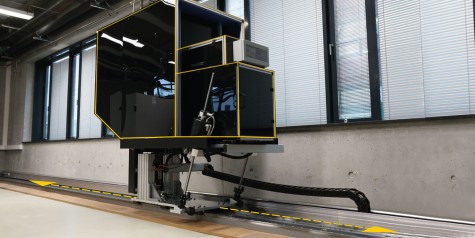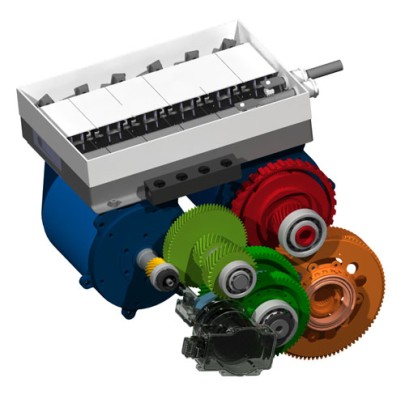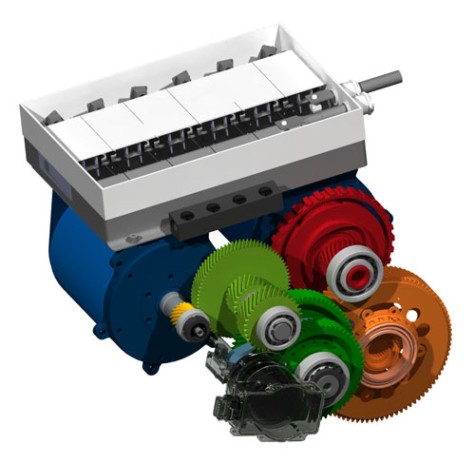In the field of powertrain systems, the IMS covers the entire development process, starting with the conceptual design and multicriterial optimization of electric and hybrid powertrain concepts. In addition to the optimization of efficiency, driving performance and costs, approaches for the holistic evaluation of the ecology (so-called Real Ecological Impact) of drive systems such as electric vehicles, fuel cell vehicles or dedicated hybrid electric vehicles based on agile driving cycles are pursued.
The focus is on powertrain concepts based on the basic idea of modular electric multi-speed drives with two electric machines. The so-called Two-Drive-Transmission are very efficient and comfortable drives for both electric and fuel cell vehicles. In addition, the parallel-series connection of an internal combustion engine to the electric multi-speed transmission allows dedicated hybrid powertrain configurations such as the DE-REX to be deduced.


The electric and dedicated hybrid powertrains are characterized, for example, by the integration of the electric machines into the powertrain. Thus, the electric motors take over transmission functions like speed synchronization and reversing for driving backwards. As a result, the complexity and number of transmission components – and the associated costs – can be significantly reduced. Functional integration creates new challenges in the design, integration and application of the control system, which are faced with model-based development approaches.
At the end of the development process, the powertrain systems as well as the control are tested and further developed both on test benches and directly in the vehicle. The IMS also uses specially developed test bench concepts such as the “Car-in-the-Loop” (insert link to test benches). In addition, it is also possible to evaluate subjective driving comfort (e.g. launching or gear changes) in early development phases using the longitudinal dynamics driving simulator “Driveception” on the basis of test person experiments.



